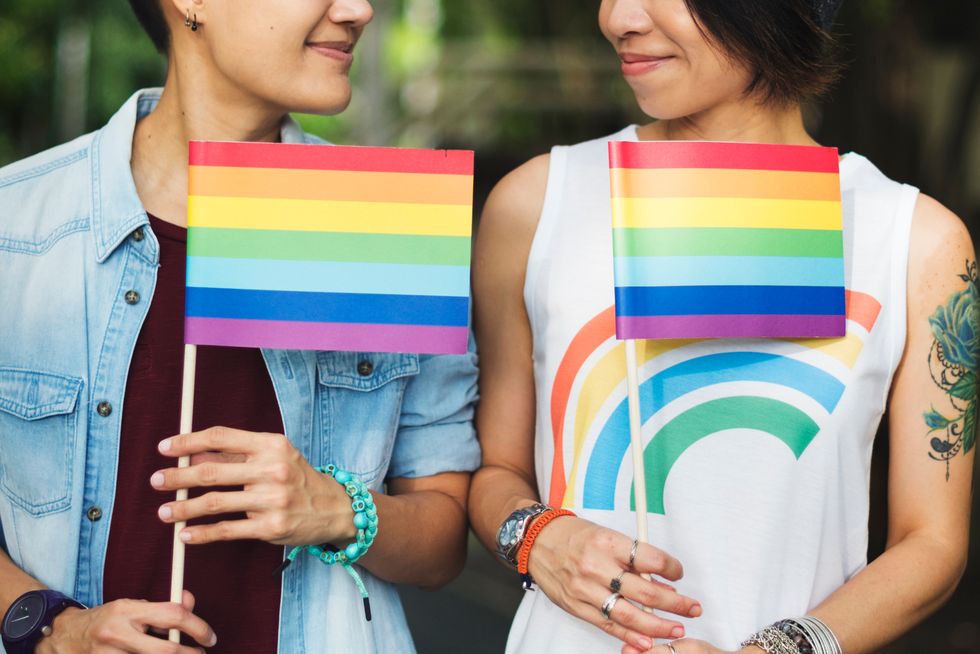Pride Month is underway, and corporations across the globe are cranking out rainbow-colored merchandise to rake in extra profit. It's my second Pride Month being out of the closet as a lesbian, and seeing millions of people like me celebrating who they are is incredible and empowering. While we celebrate this wonderful month, we still have to face the prejudices and stereotypes that face our community on a day to day basis. One of the more subdued issues facing our community is the power of snap judgments. Straight and gay people alike are quick to assume one's sexual orientation and gender identity, often times without knowing anything about this person.
The way media has portrayed members of the LGBTQ+ community has resulted in a number of enduring schemas in our heads of what a queer or trans person is like. This can include anything from how we look, how we talk, what we like, and how we present ourselves. While it may seem like standard stereotyping, which most people do with a variety of different subgroups and cultures, it can be incredibly detrimental to one's mental health. The desire to match the expectations of one's identity, or being "gay enough" or "bi enough" or "trans enough", is enough to impact self-esteem to a significant degree.
As a gay woman, I deal with this a lot. In these sorts of interactions, whether it's in person or after someone has seen my Twitter, it usually starts out with someone saying something like "Wait, you're gay?" and "Wow, you don't look it". Another popular question to follow is "So, like, are you bi?". I usually just correct them and say that I'm a lesbian, but that question has always thrown me off. It would be one thing if I got it sometimes, but it's something else given I get it a lot. Why, though? Do I appear bisexual? Do I radiate attracted-to-men energy? When I tell you I'm a lesbian, do I not look lesbian enough?
And perhaps what's even more offsetting is that my bisexual friends deal with that same questioning. Based on who they've dated in the past and how they present themselves, they are often mistaken for being either straight OR gay, not addressed or believed to be the sexual orientation they identify with. As I question whether or not I'm gay enough, they question whether or not they're bi enough. This same thing happens to LGBTQ+ individuals of all identities, for example, trans/enby individuals at any point in their transition.
Not feeling like what you identify with sucks. Plain and simple. I have a bisexual friend who hasn't dated women before but feels less bisexual because they haven't had a physical relationship with someone of that gender. Sometimes I feel less gay because I thought that I had crushes on guys in middle school and high school and that I should've figured it out sooner. We put so much pressure on ourselves to be the most acute version of our labels as we can, but it has always done more harm than good. Stereotypes about your identity don't define you, you define what your identity means to you.
This Pride Month, I'm here to say that there's no one way to be straight, gay, lesbian, trans, pan, bi, ace, aro, enby, queer, or any identity/orientation. Doubting yourself, being misgendered or misidentified, oppression, homophobia, transphobia, and violence are struggles that our community has to face every day, but we don't face these challenges alone. Together, during the month of June, we celebrate who we are — and break down the boxes society tries to put us into based on what we call ourselves. Whether you fit the stereotypes associated with your identity or not, you are validly and correctly yourself, and that's the real thing to be proud of.

















